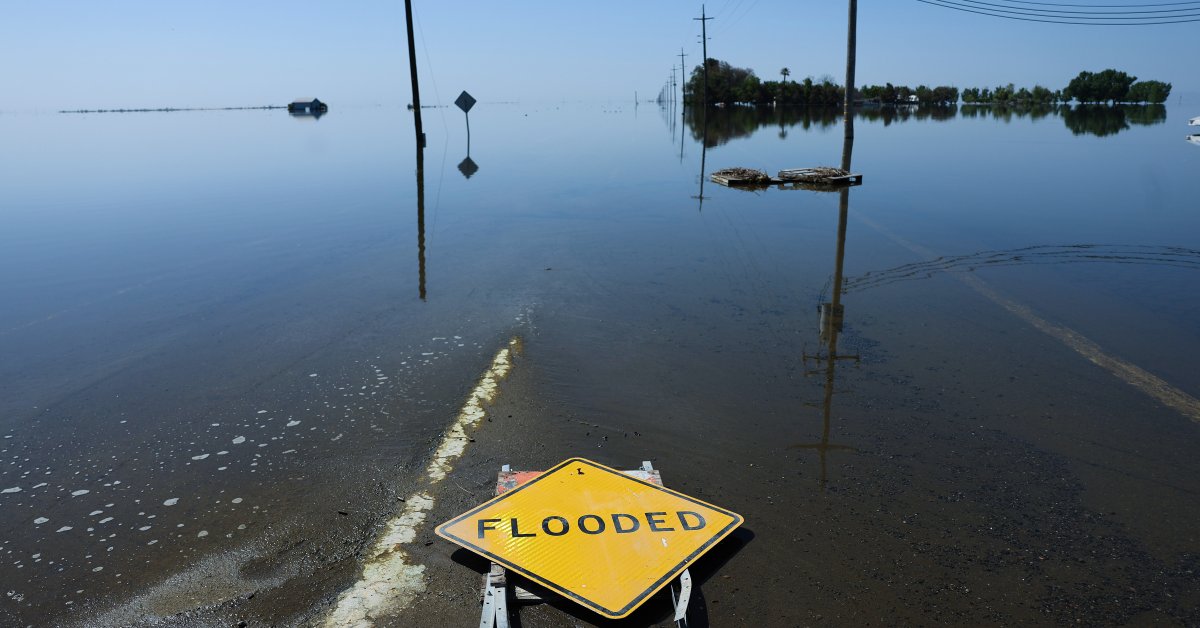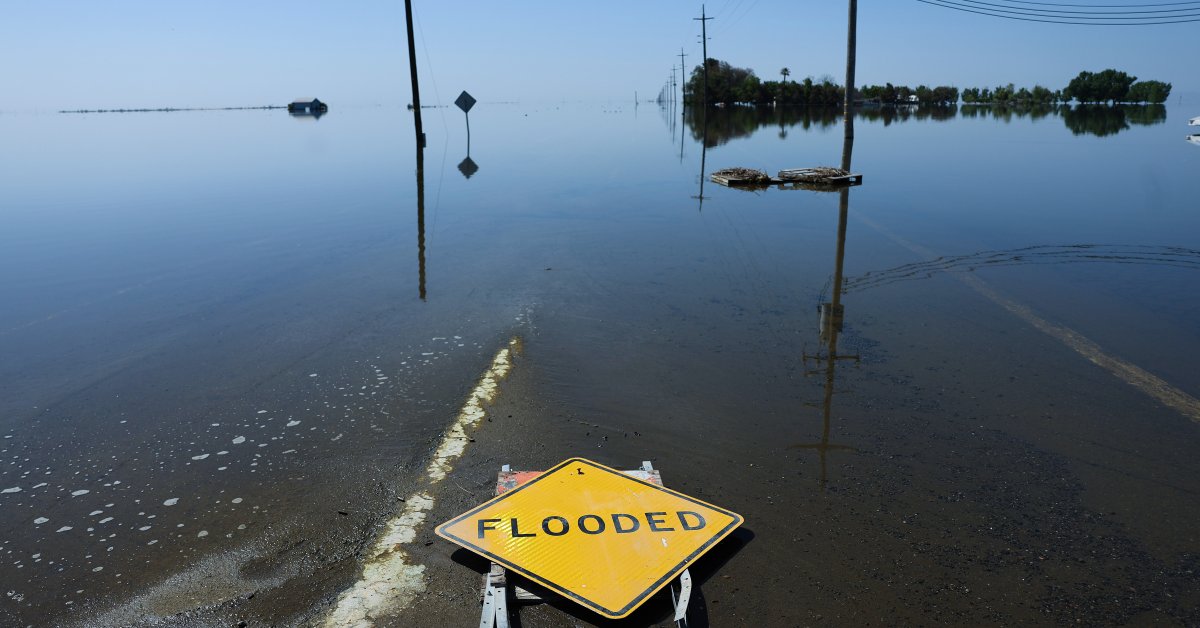Why Are Once-a-Century Weather Events Occurring More Frequently?

Welcome to your ultimate source for breaking news, trending updates, and in-depth stories from around the world. Whether it's politics, technology, entertainment, sports, or lifestyle, we bring you real-time updates that keep you informed and ahead of the curve.
Our team works tirelessly to ensure you never miss a moment. From the latest developments in global events to the most talked-about topics on social media, our news platform is designed to deliver accurate and timely information, all in one place.
Stay in the know and join thousands of readers who trust us for reliable, up-to-date content. Explore our expertly curated articles and dive deeper into the stories that matter to you. Visit Best Website now and be part of the conversation. Don't miss out on the headlines that shape our world!
Table of Contents
Why Are Once-a-Century Weather Events Occurring More Frequently?
The world is witnessing a dramatic increase in the frequency and intensity of extreme weather events. What were once considered "once-a-century" occurrences – devastating hurricanes, crippling droughts, record-breaking heatwaves – are now happening with alarming regularity. This isn't just bad luck; it's a stark warning sign of a changing climate. But why are these events happening more often? The answer lies in the complex interplay of climate change and established weather patterns.
The Unmistakable Fingerprint of Climate Change
The most significant contributing factor is undoubtedly climate change, driven primarily by human activities. The burning of fossil fuels releases greenhouse gases, such as carbon dioxide and methane, into the atmosphere. These gases trap heat, causing a gradual warming of the planet. This warming effect isn't uniform; it amplifies existing weather patterns, leading to more extreme outcomes.
-
Increased Temperatures: Higher average temperatures provide more energy to the atmosphere, fueling more intense storms and longer, more severe heatwaves. This extra energy translates directly into stronger winds in hurricanes and more significant rainfall in storms.
-
Sea Level Rise: Melting glaciers and thermal expansion of seawater contribute to rising sea levels. This exacerbates the impact of storm surges, leading to more extensive coastal flooding during hurricanes and other extreme weather events. Coastal communities are particularly vulnerable. Learn more about the impacts of sea level rise on coastal communities .
-
Changes in Precipitation Patterns: Climate change alters atmospheric circulation patterns, leading to shifts in rainfall distribution. Some areas experience more intense and frequent rainfall, leading to devastating floods, while others face prolonged droughts.
Beyond Global Warming: Natural Variability Plays a Role
While climate change is the primary driver, it's crucial to acknowledge the role of natural climate variability. Ocean currents, atmospheric oscillations like El Niño and La Niña, and other natural phenomena can influence weather patterns. These natural variations can temporarily amplify or dampen the effects of climate change, leading to periods of more extreme or less extreme weather.
However, the increased frequency and intensity of extreme weather events overwhelmingly point to the significant contribution of anthropogenic climate change. Natural variability alone cannot explain the dramatic shift we're observing.
The Future of Extreme Weather
The scientific consensus is clear: unless drastic measures are taken to reduce greenhouse gas emissions, the frequency and severity of once-a-century weather events will continue to increase. This means more frequent and intense hurricanes, longer and more severe droughts, more widespread and devastating floods, and more intense heatwaves.
Understanding the causes of these events is crucial for developing effective adaptation and mitigation strategies. This includes investing in resilient infrastructure, improving early warning systems, and transitioning to cleaner energy sources. The future of our planet depends on our collective response to this challenge.
Call to Action: Learn More and Get Involved
The information presented here only scratches the surface of this complex issue. We encourage you to delve deeper into the research and explore ways to contribute to climate action. You can start by researching local environmental organizations and learning about climate-conscious lifestyle choices. Our planet's future depends on it.

Thank you for visiting our website, your trusted source for the latest updates and in-depth coverage on Why Are Once-a-Century Weather Events Occurring More Frequently?. We're committed to keeping you informed with timely and accurate information to meet your curiosity and needs.
If you have any questions, suggestions, or feedback, we'd love to hear from you. Your insights are valuable to us and help us improve to serve you better. Feel free to reach out through our contact page.
Don't forget to bookmark our website and check back regularly for the latest headlines and trending topics. See you next time, and thank you for being part of our growing community!
Featured Posts
-
 This Netflix Series Is A Masterpiece But Be Warned Its Hard To Watch
May 31, 2025
This Netflix Series Is A Masterpiece But Be Warned Its Hard To Watch
May 31, 2025 -
 Wwe And Aew Summer Showdown Nxt Taping Confirmed At 2300 Arena
May 31, 2025
Wwe And Aew Summer Showdown Nxt Taping Confirmed At 2300 Arena
May 31, 2025 -
 Critics And Fans Agree This Netflix True Crime Series Is A Masterpiece But Difficult To View
May 31, 2025
Critics And Fans Agree This Netflix True Crime Series Is A Masterpiece But Difficult To View
May 31, 2025 -
 Increasing Frequency Of Hundred Year Weather Events Understanding The Shift
May 31, 2025
Increasing Frequency Of Hundred Year Weather Events Understanding The Shift
May 31, 2025 -
 Catch Up Best New Tv Shows Released In May 2025
May 31, 2025
Catch Up Best New Tv Shows Released In May 2025
May 31, 2025
